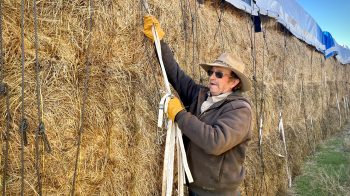TARP money could reduce the deficit
TEXT OF INTERVIEW
Stacey Vanek-Smith: A lot of the money that had been slated for TARP now is probably going to go to funding job creation. Here to talk about that with us is Senator Judd Gregg from New Hampshire. He joins us live. Good morning Senator!
Judd Gregg: Good morning, how are you?
Vanek-Smith: Find thank you, how are you?
Gregg: Great.
Vanek-Smith: So tell me: What do you think about using TARP money to try to create jobs?
Gregg: Well it’s against the law. The TARP, when it was created, was for the purposes of stabilizing the financial structure of this country — which it did, and it did it in such an effective way that it’s now being paid back with interest. So taxpayers are actually making money on the money that was basically put out to stabilize the financial industry. But the law has this specific language — and I know it’s specific, cause I wrote it — that said as the money comes back in, it’s to be used to reduce the deficit and the debt. Because our debt is one of our biggest problems as a nation. We’re running trillions of dollars of debt — trillion-dollar deficit, over a trillion-dollar deficit this year — but for the next 10 years, the president’s budgets are projecting trillions, a trillion-dollar on average every year. Our public debt’s gone from 35 percent up to about 50 percent, it’s heading towards 80 percent of GDP, maybe over 100 percent. Unsustainable situations, and that’s why when we made this decision to go forward with TARP and put the $700 billion behind the financial structure to try to keep us from having a collapse, which would have lead to potentially a depression rather than a very severe recession, we made it equally clear, in a bipartisan way, that when the money started to come back in, as the banks paid down these, this TARP money that was using to stabilize them — with interest — that that money was to go to reduce the debt.
Vanek-Smith: How do you suggest that we address the issue of unemployment in the country — it’s at about 10 percent now, I think about 7 [million], more than 7 million people are unemployed. What’s the best way to address that?
Gregg: Well, there are all sorts of ways to address that, but the government’s role should be to give the small business people in this country, men and women who are out there taking risks and are the real job creators in our country, some certainty as to what their future’s like. Unfortunately, with this health bill that’s moving through the Congress, there’s total uncertainty, there’s major penalties in here for small business, major new taxes for small business. You’ve got this movement in the area of cap and trade, which is a massive national sales tax potentially. So you’ve got the business community a little concerned about what its future is and whether it’s willing to make investments versus it’s going to have to spend money to pay taxes. So I think the best thing the government can do is create an atmosphere for people who are willing to take risks to take risks to create jobs. Small business people want to expand their business.
Vanek-Smith: Senator Judd Gregg from New Hampshire. Senator, thank you so much.
Gregg: Thank you for your time.
There’s a lot happening in the world. Through it all, Marketplace is here for you.
You rely on Marketplace to break down the world’s events and tell you how it affects you in a fact-based, approachable way. We rely on your financial support to keep making that possible.
Your donation today powers the independent journalism that you rely on. For just $5/month, you can help sustain Marketplace so we can keep reporting on the things that matter to you.


















